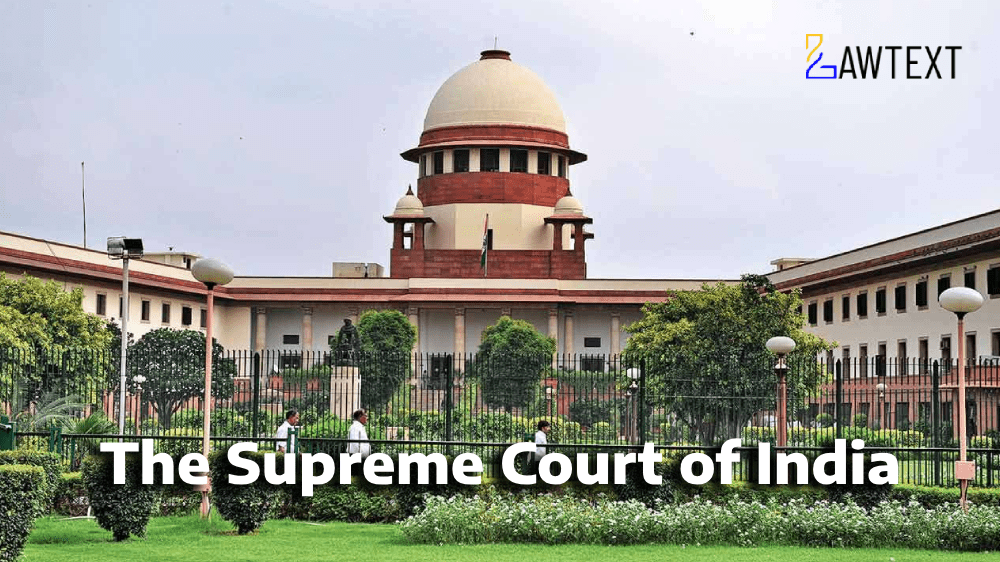

Substitution Applications Filed by Heirs of Deceased Respondents Held Valid; Supreme Court Highlights Proper Sequence for Abatement Proceedings.
Constitution of India, Article 136 – Code of Civil Procedure, 1908 (CPC), Order XXII Rules 3, 4, 10-A – Limitation Act, 1963, Sections 5, Articles 120, 121-- Appeal against High Court orders dismissing substitution applications for delay – Held, substitution application by heirs of deceased respondent was valid and should have been considered – Abatement of appeals set aside – Supreme Court reiterates importance of justice-oriented approach and proper procedural sequence in abatement cases – Reference made to Perumon Bhagvathy Devaswom v. Bhargavi Amma (2008) 8 SCC 321 and Mithailal Dalsangar Singh v. Annabai Devram Kini (2003) 10 SCC 691 (Paras 9, 23)
Held:
substitution application filed by heirs of deceased respondents was valid under Order XXII CPC – Om Prakash’s heirs not required to file separate substitution application (Paras 18, 19). Abatement set aside; second appeals restored (Paras 21, 24).
Subjects:
Substitution Applications – Abatement – Delay Condonation – Justice-Oriented Approach – Procedural Compliance – Legal Representatives – Specific Performance
Facts:
a. Civil Appeal No. 13407 of 2024 arose from a suit for specific performance filed by Satish Chandra against Om Prakash Gupta, dismissed by trial court (7th October, 1974), decreed in first appeal (31st March, 1977) and stayed in second appeal by High Court (11th May, 1977).
b. Civil Appeal No. 13408 of 2024 arose from a similar suit filed by Rooprani against Om Prakash and his sons, dismissed by trial court (7th October, 1974), decreed in first appeal (31st March, 1977), and stayed in second appeal (11th May, 1977).
c. Subsequent deaths of Satish Chandra (1996) and Rooprani (1991) led to substitution applications by their heirs, which were contested by Om Prakash’s heirs after his death (2001) – High Court dismissed substitution applications for delay (27th February, 2019).
Issues:
a. Whether the High Court erred in dismissing the substitution applications due to delay despite valid substitution applications filed by deceased respondents' heirs (Paras 7, 8).
Submissions/Arguments:
a. Appellants argued procedural lapses were prioritized over substantive justice (Para 5).
b. Respondents contended appellants’ negligence warranted dismissal (Para 6).
Ratio Decidendi:
a. Application for substitution by any party suffices for compliance with Order XXII CPC – Non-issuance of notice under Rule 10-A, CPC, due to lack of clarity in informing death, vitiates abatement (Paras 29-31).
b. Justice-oriented approach mandates liberal consideration of delay in abatement cases – Procedural sequence for abatement outlined (Paras 10-12).
c. Powers under Article 136, Constitution, allow Supreme Court to correct manifest errors even suo motu (Para 21).
Citation: 2025 LawText (SC) (2) 114
Case Number: CIVIL APPEAL NO. 13407 OF 2024 WITH CIVIL APPEAL NO. 13408 OF 2024
Date of Decision: 2025-02-11
Case Title: OM PRAKASH GUPTA ALIAS LALLOOWA (NOW DECEASED) & ORS. VERSUS SATISH CHANDRA (NOW DECEASED)
Before Judge: (DIPANKAR DATTA J. , PRASHANT KUMAR MISHRA J.)
Appellant: OM PRAKASH GUPTA ALIAS LALLOOWA (NOW DECEASED) & ORS.
Respondent: SATISH CHANDRA (NOW DECEASED)